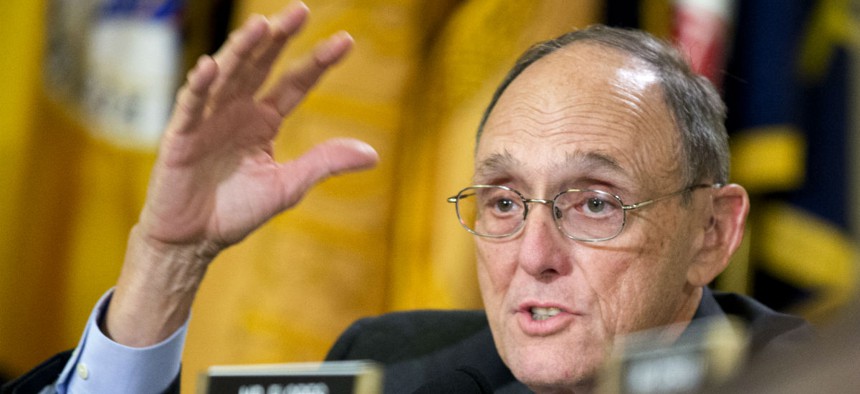Lawmakers Introduce Major GI Bill Expansion
Legislation would remove time limit on benefits, expand reservists’ access to program.
A bipartisan coalition of lawmakers introduced a bill Thursday that would remove the 15-year deadline for veterans to access GI Bill educational benefits, and significantly expand access to the program for members of the National Guard and Reserve.
The Harry W. Colmery Veterans Educational Assistance Act (H.R.3218), known as the Forever GI Bill and introduced by House Veterans’ Affairs Committee Chairman Phil Roe, R-Tenn., would mark the first major expansion of the GI Bill since the Post-9/11 GI Bill was enacted in 2008.
The biggest change to the educational assistance program for service members and veterans, which dates back to World War II, is the elimination of the rule that veterans have 15 years from their last active duty discharge date to use GI Bill benefits for all new service members. Current service members and veterans still would be subject to the time limit.
“We have a duty to care for every man and woman who has served their country honorably as they begin their transition from active duty to civilian life,” Roe said in a statement. “One essential way we can empower service members is to give them the tools they need to succeed in whatever career they pursue. Data shows time and time again that student veterans outperform their peers in the classroom, and I’m proud of this bipartisan legislation to expand GI Bill benefits.”
Additionally, the legislation would ensure that reservists deployed for disasters and overseas mission support are eligible for the GI Bill. Military and veteran advocates testified before a Senate committee last month to discuss, among other issues, how reservists called up to active duty under Title 10, Section 12304 of the U.S. Code often discovered upon returning home that they did not accrue education benefits. The bill makes those orders eligible for the GI Bill, retroactive to 2008.
Other provisions of the new bill include ensuring that reservists continue to accrue GI Bill benefits while undergoing medical care or recovering from injuries sustained while on active duty, as well as increasing the eligibility ratio for reservists on active duty: for those who serve between 90 days and six months, it would increase from 40 percent to 50 percent benefit payable; and for six months to one year of service, it would increase from 50 percent to 60 percent.
Any service member who is awarded a Purple Heart would receive full GI Bill eligibility. The legislation also would restore eligibility to service members whose college or institution closes mid-semester, and it would establish a $100 million scholarship program for veterans seeking degrees in STEM fields.
Rep. Tim Walz, D-Minn., the top Democrat on the committee, said the bill is an important step forward in helping veterans succeed as they transition into civilian life.
“This bipartisan G.I. Bill will improve the lives of future generations of veterans by enhancing existing benefits, correcting current gaps in eligibility, and providing new benefits to help our veterans in today’s economy without asking our troops or American taxpayers to pay more,” he said.
Jared Lyon, president and CEO of Student Veterans of America, said the legislation is an important update to the long-running program.
“In May, I promised that the coalition we build around the Forever GI Bill would ensure the GI Bill serves everyone and opens up opportunities missed due to the antiquated use of a time limit for benefits," he said. "Today is that promise delivered thanks to the support of our coalition partners and the leadership by congressmen Phil Roe and Tim Walz.”
The committee plans to hold a hearing on the bill Monday evening, with a markup session to follow on Wednesday.
NEXT STORY: Weighing Your Life Insurance Options




